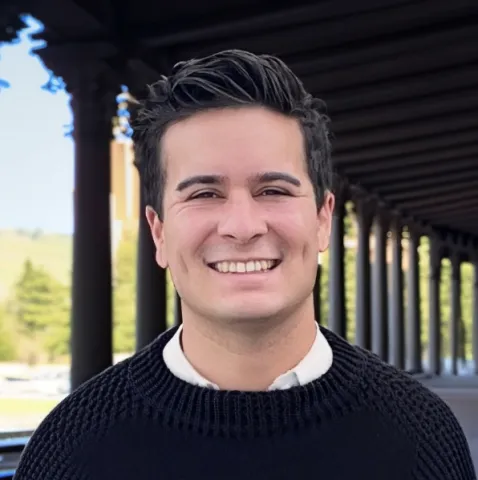
Jacob Ramirez

Prior to coming to Stanford GSE, I completed my BA in International Relations & Development at UC Berkeley and worked for a nonprofit in New York City, where I developed and implemented education programs and curricula for justice-impacted learners in NYC jails, prisons, and reentry organizations. As a first-generation college student, I was always starkly aware of the vast inequities that permeate throughout the US education system, but this role made me realize more than ever how deeply broken the system is. I decided to apply to graduate school in order to deepen my understanding of education policy, theory, and development so that I could build more effective and equitable education experiences for marginalized learners and their communities.
I was accepted to four graduate programs, but decided to come to Stanford for the ICE / IEPA program for several reasons:
- The ability to create a plan of study tailored directly to my interests and learning goals. My previous experience in education was quite niche, and I knew I wanted to dive deeper into the intricacies of education in prison and education in nontraditional environments. I was able to do exactly that through the MA thesis, which allowed me to dedicate a full year to researching the topic and taking courses that strengthened my ability to contribute to the field. I learned how to conduct detail rich and unbiased qualitative interviews, how to develop engaging curricular experiences for nontraditional students, how to facilitate knowledge transfer through hands-on learning with both traditional and cutting edge fabrication techniques, and more importantly, how to actually use all of this knowledge to make an impact.
- Deep training in research methods from experts in their fields. I had conducted research during undergrad and deeply enjoyed it, but I wasn’t ready to call myself a researcher. ICE/IEPA’s emphasis on developing expertise in research methods and practices gave me the tools and the confidence necessary to conduct original research of publishable quality.
- A small cohort and an amazing student to faculty ratio. The ICE / IEPA cohort ranges from 12 - 20 or so students in any given year. For my time in the program there were 14 of us. This allowed us as a cohort to gain a deep knowledge of one another’s academic interests, and some of the best feedback I received on my work was from my classmates. As for classes, you truly are on a first name basis with all your professors. The intimacy of these courses allowed for some of the most robust and enlightening academic discussions and debates I’ve ever experienced and led to me developing long lasting relationships with many of my classmates and professors.
- Resources and opportunities that extend beyond the classroom. Stanford has an amazing amount of professional and recreational resources available to students. I made extensive use of the climbing wall, art studios, and makerspaces during my time in the program and met so many amazing people through these communities. I spent countless hours in the GSE Makery and developed an interest in making, but more specifically in how we could bring making and the ethos of these spaces to learners who have historically been shut out from creative pursuits and exploration. I also spent a lot of my time as a student teaching in one of several San Francisco County Jails, where I was lucky enough to be supported by a Stanford Arts Institute grant that enabled me to develop and implement creative curricula for incarcerated learners.
After graduating, I wanted to continue developing expertise in maker education, maker space management, and creative curriculum development. I ended up applying for the Lab Manager role at the aforementioned Stanford GSE Makery, where I now get to spend every day exploring and expanding the possibilities of makerspace education.
My time at Stanford completely changed my world and worldview. It is still hard to believe that I was able to experience, and accomplish, so much in one year. I truly cannot imagine pursuing my master’s degree anywhere else, and am forever grateful to have had the opportunity to learn and grow here. If you have the opportunity to pursue your degree here, I cannot encourage you enough to do so. And if you do, stop by the Makery and say hi!
